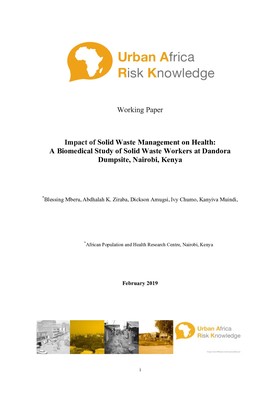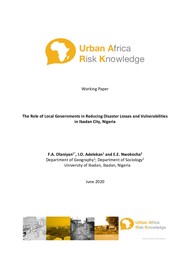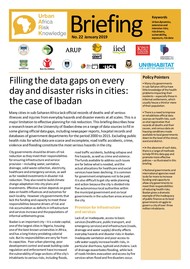Impact of Solid Waste Management on Health: A Biomedical Study of Solid Waste Workers at Dandora Dumpsite, Nairobi, Kenya

Urbanization is a major feature of global population redistribution, and Sub-Saharan Africa (SSA), though currently ranked as the least urbanized region of the world, is the most rapidly urbanizing globally. It is projected that in the next few decades the continent will have more than half of its population living in urban settings and this increase comes with several challenges, among which is the high production of solid waste. The management of this waste and associated health risks constitutes a major problem confronting many cities in SSA. This study builds on the need for research to objectively identify the specific health issues associated with vulnerability to poor solid waste management, especially among workers directly exposed to these wastes.
The objectives of the study were to: (a) Assess the prevalence of infections associated with exposure to wastes among waste workers; (b) Identify and estimate the prevalence of injuries and accidents associated with exposure to solid waste; (c) Explore knowledge and perceptions of stakeholders and general public on the health risks associated with poor solid waste management. This was a cross-sectional study conducted over a period of approximately twelve months. The study employed a complimentary mixed methods approach (quantitative and qualitative) in the data collection process.
Cite this publication
Available at https://www.iied.org/21646g






